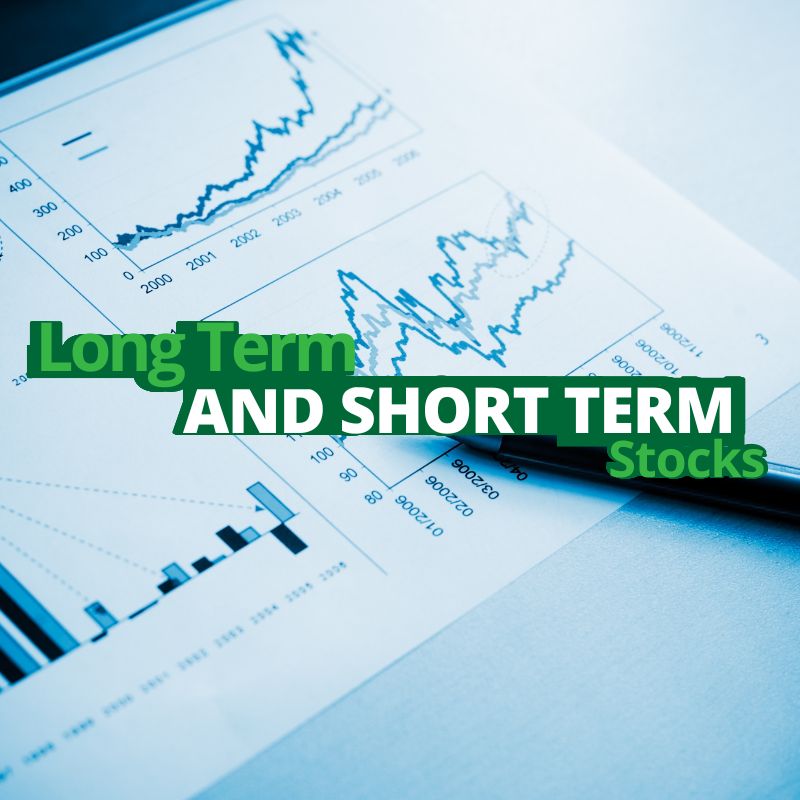Best Short-term Stocks To Invest In Right Now

Navigating the stock market in the short term requires careful consideration of various factors, including market volatility, sector trends, and individual company performance. Identifying potentially lucrative short-term investments necessitates a blend of fundamental and technical analysis. Investors are constantly seeking opportunities to capitalize on short-term market fluctuations.
This article explores some sectors and specific stocks that analysts suggest may present promising opportunities for short-term gains. It's crucial to remember that all investments carry risk, and past performance is not indicative of future results. This information should not be considered financial advice; consult with a qualified financial advisor before making any investment decisions.
Tech Sector: Riding the AI Wave
The technology sector remains a focal point for short-term investors, particularly companies involved in artificial intelligence. The surge in AI adoption across various industries has created significant growth potential for companies developing and deploying AI solutions. Increased demand for cloud computing also fuels the tech sectors growth.
One area of focus is semiconductor manufacturers. Companies like Nvidia (NVDA) and Advanced Micro Devices (AMD) are key players in providing the hardware necessary for AI development. According to a recent report by Semiconductor Industry Association, the demand for semiconductors is projected to continue growing, driving revenues for these companies.
However, the tech sector is also sensitive to interest rate changes and macroeconomic conditions. Rising interest rates can impact growth stocks, so investors should closely monitor economic indicators and central bank policies. Market corrections can also significantly impact tech stocks.
Energy Sector: Geopolitical Factors and Demand
The energy sector can offer short-term opportunities driven by geopolitical events and fluctuations in supply and demand. Crude oil prices, for instance, are influenced by global events such as production cuts by OPEC+ nations and disruptions in supply chains.
Energy companies like ExxonMobil (XOM) and Chevron (CVX) can experience short-term price movements based on these market dynamics. The Energy Information Administration (EIA) releases regular reports on energy production, consumption, and inventory levels, providing valuable information for investors. It's important to note that investing in the energy sector requires careful assessment of global political and economic factors.
Furthermore, the transition towards renewable energy can impact the long-term outlook for traditional energy companies. Investors should consider the potential impact of environmental regulations and the growing demand for renewable energy sources when evaluating these stocks.
Healthcare Sector: Innovations and Demographics
The healthcare sector can offer relatively stable investment opportunities due to its essential nature and consistent demand. Companies involved in biotechnology, pharmaceuticals, and medical devices can experience short-term price movements based on clinical trial results, regulatory approvals, and new product launches.
Johnson & Johnson (JNJ) and Pfizer (PFE) are examples of established healthcare companies that can experience short-term volatility based on news events. The aging global population also drives demand for healthcare products and services. The Centers for Medicare & Medicaid Services (CMS) provides data on healthcare spending and utilization, offering insights into market trends.
However, the healthcare sector is subject to regulatory scrutiny and political pressures, which can impact profitability. Investors should be aware of potential policy changes and pricing pressures that could affect the sector.
Financial Sector: Interest Rates and Economic Growth
The financial sector, including banks and investment firms, is closely tied to interest rates and economic growth. Banks like JPMorgan Chase (JPM) and Bank of America (BAC) can benefit from rising interest rates, which increase their net interest margins. Strong economic growth typically leads to increased lending activity and investment banking revenues.
The Federal Reserve's monetary policy decisions significantly impact the financial sector. Investors should closely monitor Fed announcements and economic data releases. Conversely, economic downturns and declining interest rates can negatively impact the financial sector.
Regulatory changes and cybersecurity risks are also important considerations for investors in this sector. The financial sector is also prone to market corrections during times of uncertainty.
Disclaimer and Conclusion
Investing in the stock market involves risk, and short-term investments are particularly susceptible to volatility. This article is for informational purposes only and does not constitute financial advice.
Before making any investment decisions, consult with a qualified financial advisor to assess your risk tolerance and investment objectives. Diversification and careful risk management are essential components of a successful investment strategy.
The stocks and sectors mentioned in this article represent potential opportunities based on current market conditions, but there is no guarantee of future performance. Remember that thorough research and due diligence are crucial before investing in any stock.


















